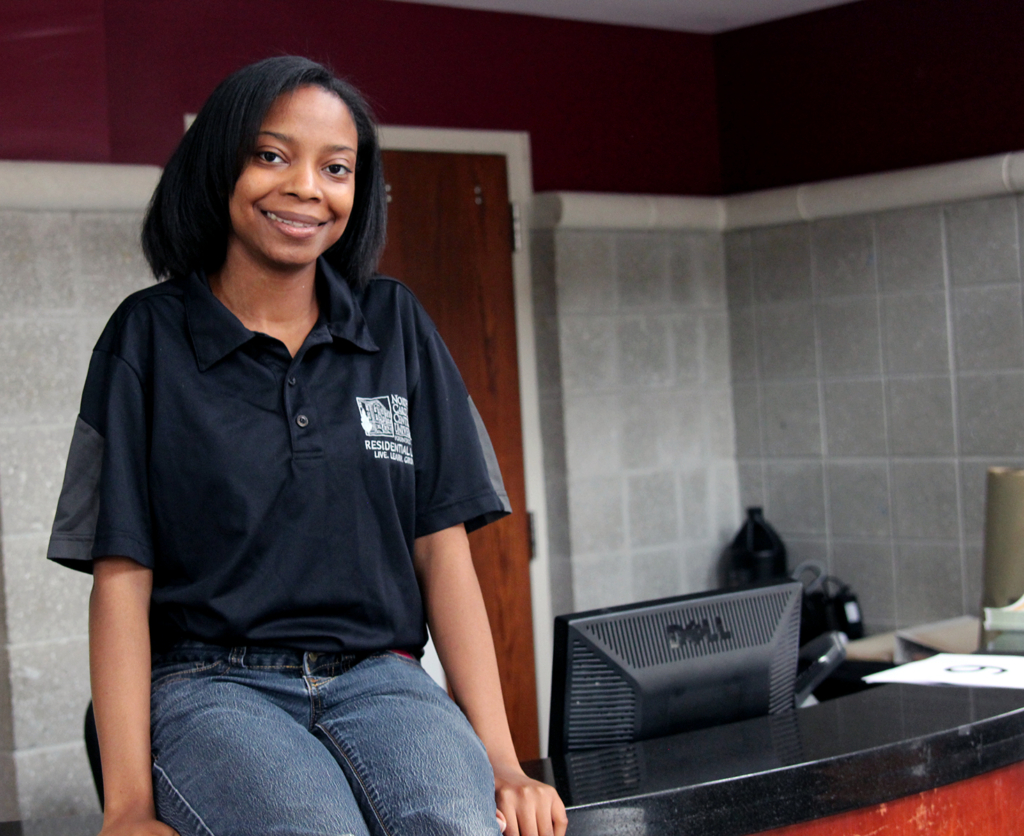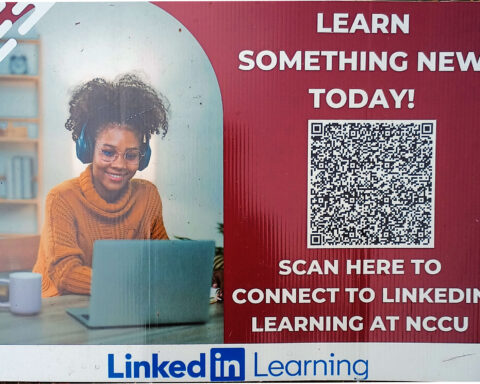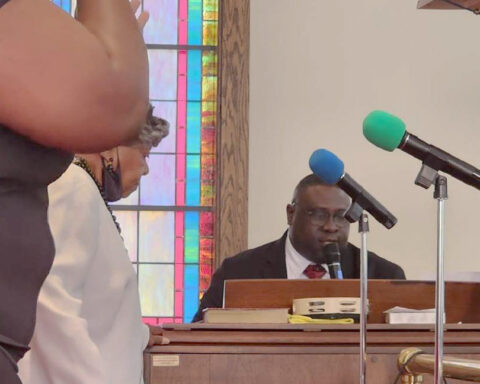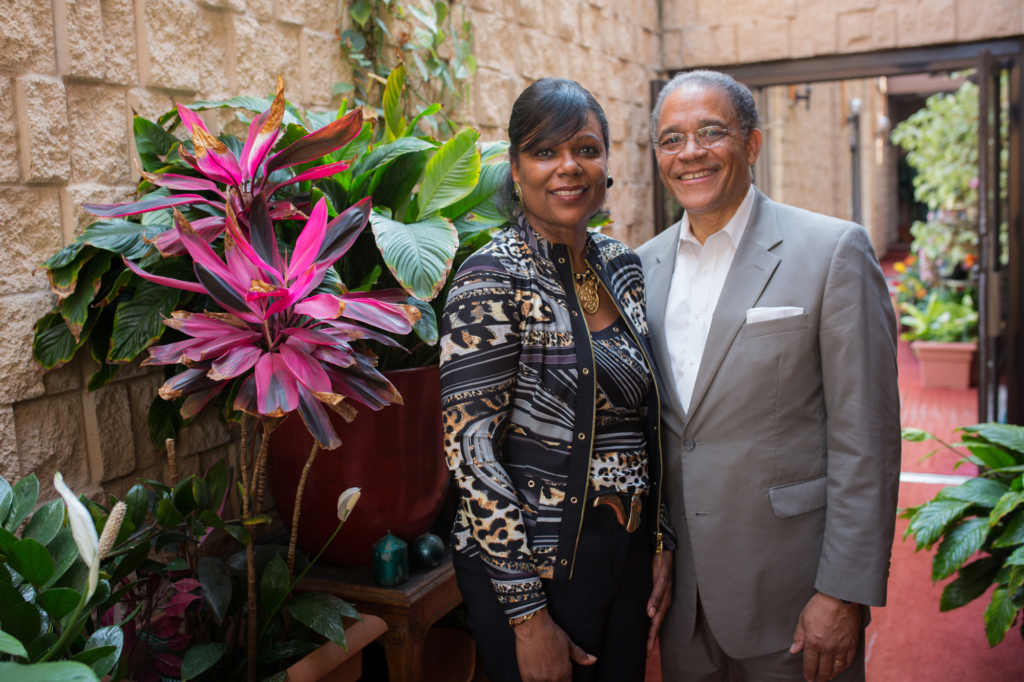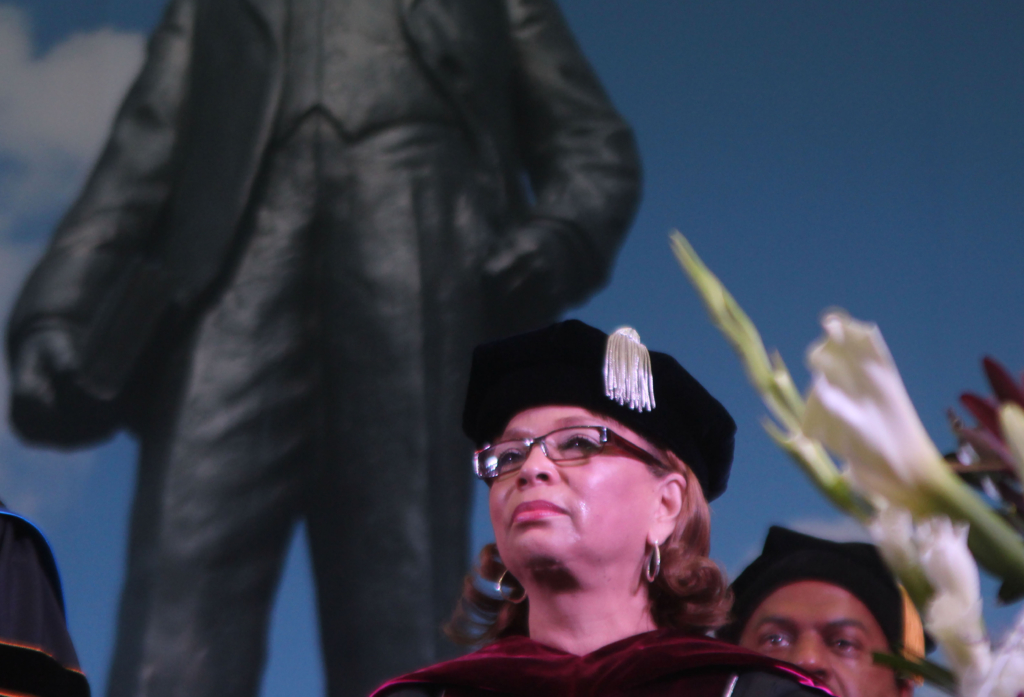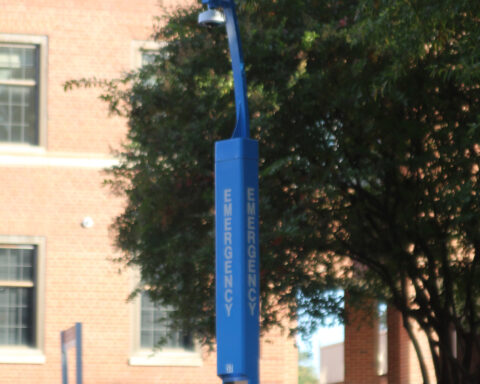The struggle of having no one to turn to, of having to rely on yourself alone, can be challenging, especially when you’re 17 and a high school senior.
On the day she was born Kristie Wimbush, who will graduate this week with a degree in social work from N.C. Central University, was handed over to foster care.
Her birth mother used a fake name when she delivered Wimbush. Her mother left the hospital without saying a word to anyone. The day she was born was the first and only day she had contact with her birth mother.
“I remember when I was younger, about 8 or 10, I thought everyone who was in foster care or adopted didn’t know who their parents were,” said Wimbush, explaining that only later in life did she realize many children in foster care have connections with their biological parents. “It’s just interesting how even though you were in foster care, your experiences are just different.”
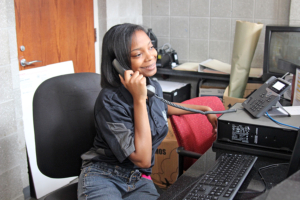
Wimbush was born premature, so premature in fact, that her doctors were afraid she might not even survive.
“Instead of letting me die in the hospital, they thought it would be better to put me in foster care so at least I could die in a ‘loving home’ or something like that,” said Wimbush.
When she was placed in foster care in Henderson, N.C. with Lucy Wimbush she was so small, Lucy would tell her, “you could fit in the palm of my hand.” Lucy, a single mom, had four grown biological children and was taking care of a boy her age, also in the foster care system.
At age four Lucy, now in her 50s, formally adopted Wimbush and her brother.
She would find out about the adoption a couple years later. “I can’t remember her exact words,” said Wimbush, “but she said something along the lines of ‘I’m not your real mommy.’ Me and my brother still accepted her as is.”
“It didn’t really change anything for me and how I felt about her. It was just more information. After that day I found out I was adopted, I kept asking my mom more and more questions. She would always tell me something new that she didn’t say before. She was really open with letting me know as much information as she knew about my adoption and how I was put into foster care.”
In sixth grade, Lucy, a diabetic, was diagnosed with breast cancer.
Wimbush said it was difficult going to chemo therapy sessions with her mother. When Lucy lost her leg because of her diabetes she had to take care of her almost as if she were a nurse.
“She would be screaming in pain at random times of the night. I would go back there in her room and there was nothing I could do,” said Wimbush. “I had to grow up real fast. My home life was just different from other kids.”
About two weeks before her 18th birthday her beloved mother Lucy died.
“I didn’t really experience any effects of being a foster care child until my foster mom passed away. She was the one who raised me. She was single when she adopted me too. When she passed away, I didn’t have any parents,” said Wimbush.
But the situation at home, without Lucy’s presence, was untenable.
“Some things happened in my home that made it unsafe for me and I ran away one night,” she said, not wanting to share details. “I became homeless about two months after my mom passed away. I had to go to court to press charges against this guy who assaulted me. It was just a lot going on.”
She was homeless during her high school senior year. She kept toiletries, sleeping bag, and a few articles of clothing with her at all times. She never knew whose floor or couch she would be sleeping on next. She called this “couch surfing.”
“I had a couple of breakdowns because just so much happened in such a short amount of time. I slept on people’s beds and couches,” said Wimbush. “I barely knew who they were. I didn’t even know their last names. The state never really stepped in or anything like that because by all means, I’m adopted.”
Wimbush’s relationship with Lucy’s older biological children has always been complicated, and she never received much support from them. She is still estranged from several of them.
“I kind of had this facade that I felt like I wasn’t adopted. I never knew anything else, so to me this is just my family,” she said. “Slowly, my brothers and sisters — not abandoned me — but neglected me. I understand they had their own financial problems and their own issues in the world, but everything I went through, I went through by myself. I was only 17 and 18.”
But Wimbush has found the strength to make a better life for herself. With help from Youth Villages, a scholarship agency, counselors and social workers from her high school, she was able to attend college and attain a social work degree.
She has been inducted into the social work honor society Phi Alpha, earned academic honors from the university, and will go to the University of South Carolina to work on a master’s degree in social work in USC’s advanced standing program.
As an RA she earned the “Staff MVP” award from Residential Life for her “outstanding services and professionalism.”
Wimbush explained her interest in social work saying that social workers and counselors helped her keep her life on track, even during the most difficult of times.
“I saw the huge impact of what they did,” said Wimbush. “It just took one person to change so much in me that I thought if I could be that one person for someone else in the world that would be great.”

